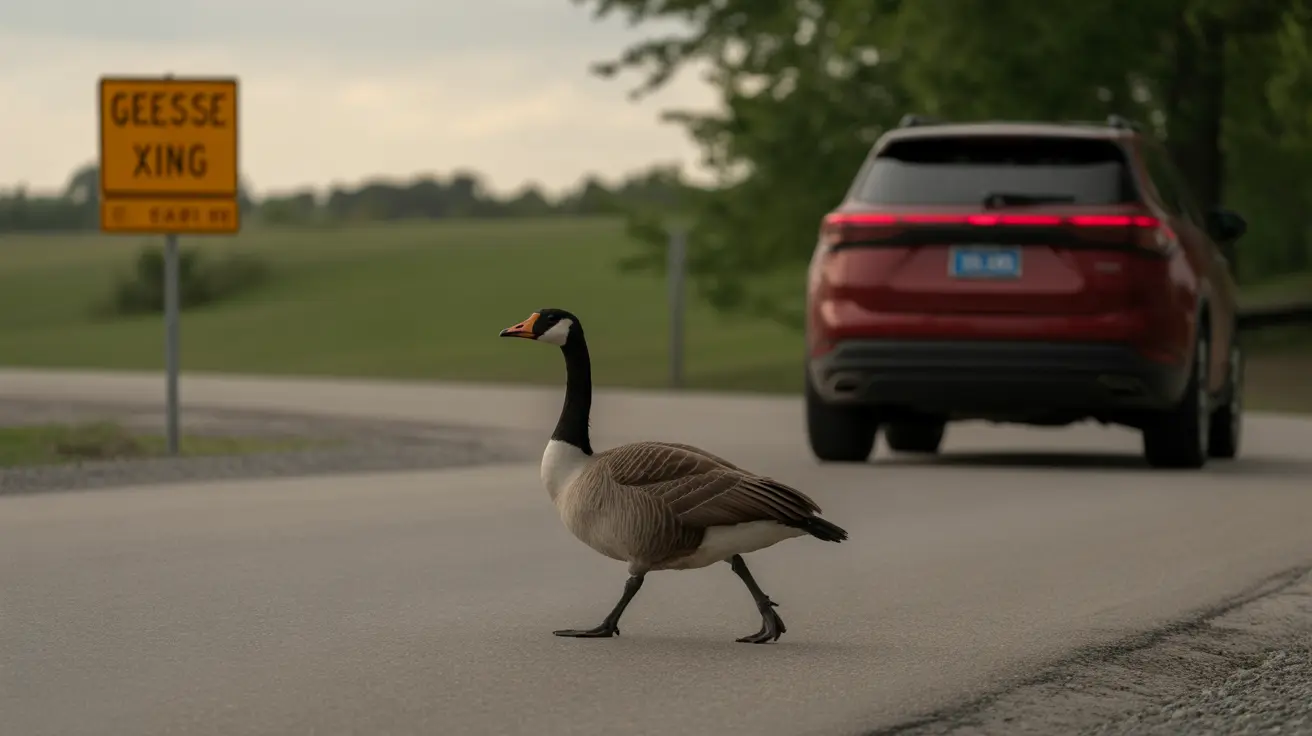A disturbing incident near a lake in Spotswood, New Jersey, has drawn attention to the state's animal cruelty laws after multiple geese were struck and killed by a vehicle. The incident, which occurred on July 14 around 6:45 p.m. along Devoe Avenue, has resulted in animal cruelty charges against the suspect.
The case highlights the serious nature of wildlife protection in New Jersey and the legal consequences that can follow when animals are harmed, whether intentionally or through negligence. As communities continue to share spaces with local wildlife, particularly near water bodies where geese frequently gather, the incident serves as a crucial reminder of driver responsibilities and wildlife protection measures.
Wildlife Protection Laws and Driver Responsibilities
New Jersey maintains strict regulations regarding the protection of wildlife, including specific provisions for migratory birds like Canada geese. These protections exist alongside federal safeguards, including the Migratory Bird Treaty Act, which provides additional layers of legal protection for various bird species.
Driver Obligations Near Wildlife Areas
- Maintain appropriate speeds that allow for sudden stops
- Stay alert for wildlife crossing signs
- Use extra caution during dawn and dusk hours
- Be particularly vigilant near bodies of water where geese frequently gather
NJ Animal Welfare Enforcement
The enforcement of animal welfare laws in New Jersey involves multiple agencies working together to investigate and prosecute cases of animal cruelty. Local law enforcement, animal control officers, and state wildlife officials may all play roles in responding to and investigating incidents involving harm to wildlife.
Preventing Wildlife Collisions
- Scan the road edges continuously, especially in known wildlife areas
- Use high beams when appropriate and safe to do so
- Reduce speed in areas marked with wildlife crossing signs
- Be prepared to stop suddenly if animals appear
Humane Treatment of Wild Animals in New Jersey
The state's commitment to protecting wildlife extends beyond just enforcement to include education and prevention. Communities near wildlife habitats often implement additional measures such as warning signs, reduced speed limits, and public awareness campaigns to promote coexistence with local wildlife.
Frequently Asked Questions
What are the legal consequences for harming wildlife in New Jersey?
Animal cruelty charges in New Jersey can result in significant penalties, including fines and potential jail time. The exact consequences depend on factors such as intent, severity, and whether the act was deliberate or negligent.
How are Canada geese protected under law?
Canada geese are protected under both federal and state laws. The Migratory Bird Treaty Act provides federal protection, making it illegal to harm these birds without proper permits. New Jersey state laws add additional protections and enforcement mechanisms.
What should I do if I witness animal cruelty involving wildlife?
If you witness animal cruelty in New Jersey, report it immediately to local law enforcement or animal control. Document the incident if possible, noting details such as time, location, and vehicle descriptions if applicable. Quick reporting can help authorities respond effectively and ensure proper investigation of the incident.
The unfortunate incident in Spotswood serves as a reminder of our collective responsibility to protect wildlife and follow traffic laws designed to prevent such occurrences. As communities continue to develop near wildlife habitats, awareness and adherence to animal protection laws become increasingly important for both human and animal safety.






